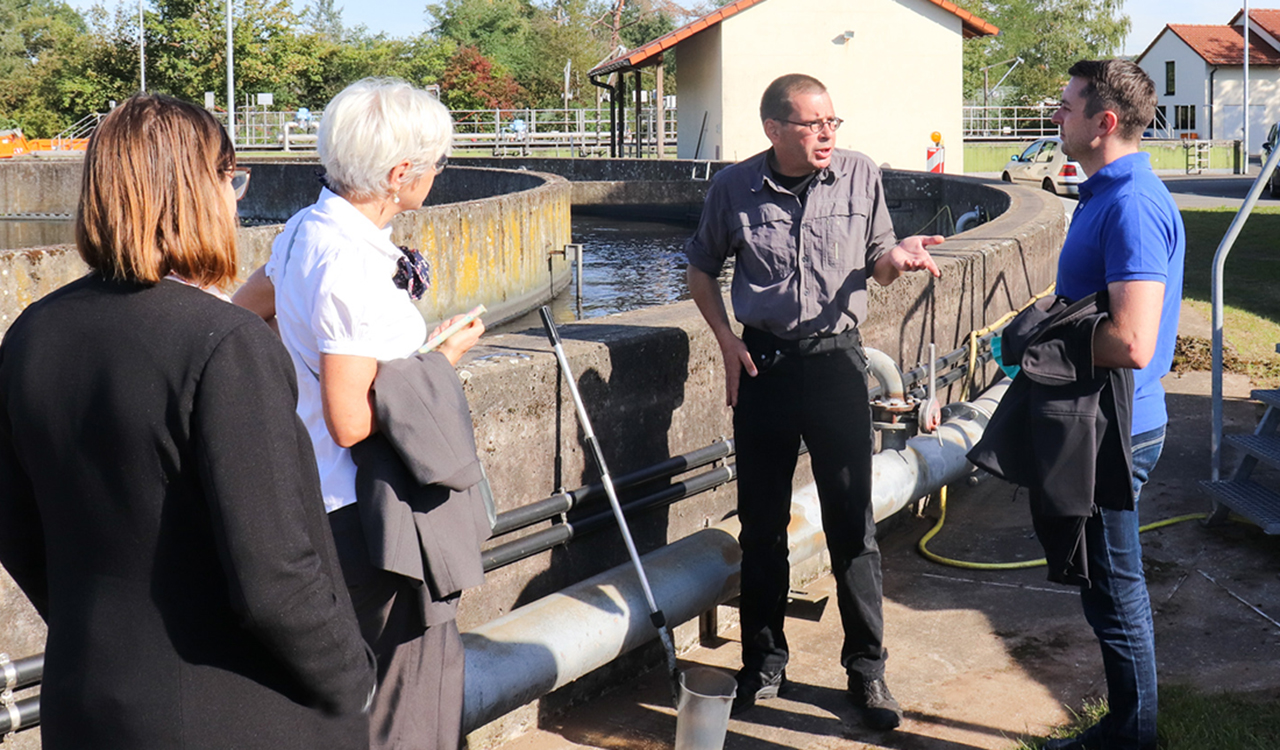Since 1966 around the clock water recycling and clean water for the bald: Visit of a purification plant in Alzenau
The recycling story of the month - September 2020
Fraunhofer IWKS in the discussion about current challenges in wastewater treatment

With more than 19,000 inhabitants, urban wastewater treatment is also of central importance in Alzenau. During a guided tour of the Alzenau wastewater treatment plant, Institute Director Prof. Dr. Anke Weidenkaff and other employees of the Fraunhofer IWKS discussed the current status and future challenges for the local resource Alzenau water. The wastewater treatment plant in Alzenau is of particular interest to the researchers because not only domestic wastewater but also wastewater from a hospital and industry is treated here. Sewage plant manager Stefan Wahler presented the individual treatment steps and explained current challenges, e.g. the necessity of constant readiness and flexibility for adjustments in case of possible new pollutants. With the combined biological treatment stage, both carbon and nitrogen compounds can be decomposed. With the help of automated aeration it is possible to react quickly to changes in wastewater quality. The downstream phosphorus elimination was of particular interest to the scientists of the Fraunhofer IWKS, as this is precisely where the research in the field of bioeconomy is focused. Phosphorus is an essential raw material for agriculture and should be recovered, not least because of the changed waste and sewage sludge ordinance. From 2032 onwards, large sewage treatment plants will have to recover phosphates from the sewage sludge or ashes according to the ordinance. Previous technologies in addition are however chemical and cost-intensive. In projects such as "PRiL - Phosphorus Recovery and Development of Intelligent Slow Release Fertilizers", researchers have already successfully demonstrated a new technology as an economical and environmentally friendly alternative to conventional processes. The scientists always focus on the entire material cycle. For example, the project also considered the treatment and recycling of process water.
During the guided tour, the guests also discussed further current and future challenges in wastewater treatment with wastewater treatment plant manager Stefan Wahler and the First Mayor of Alzenau Stephan Noll. Here above all the elimination of hardly degradable trace substances such as pharmaceuticals or pesticides in a 4th treatment stage crystallized out. In current research projects at the Fraunhofer IWKS, experiments are already being carried out using electrochemical treatment with diamond electrodes, which are very promising. Together with local, national and international partners, research is also being carried out to improve the economic efficiency and scale up the processes to an industrial scale.
Further information: